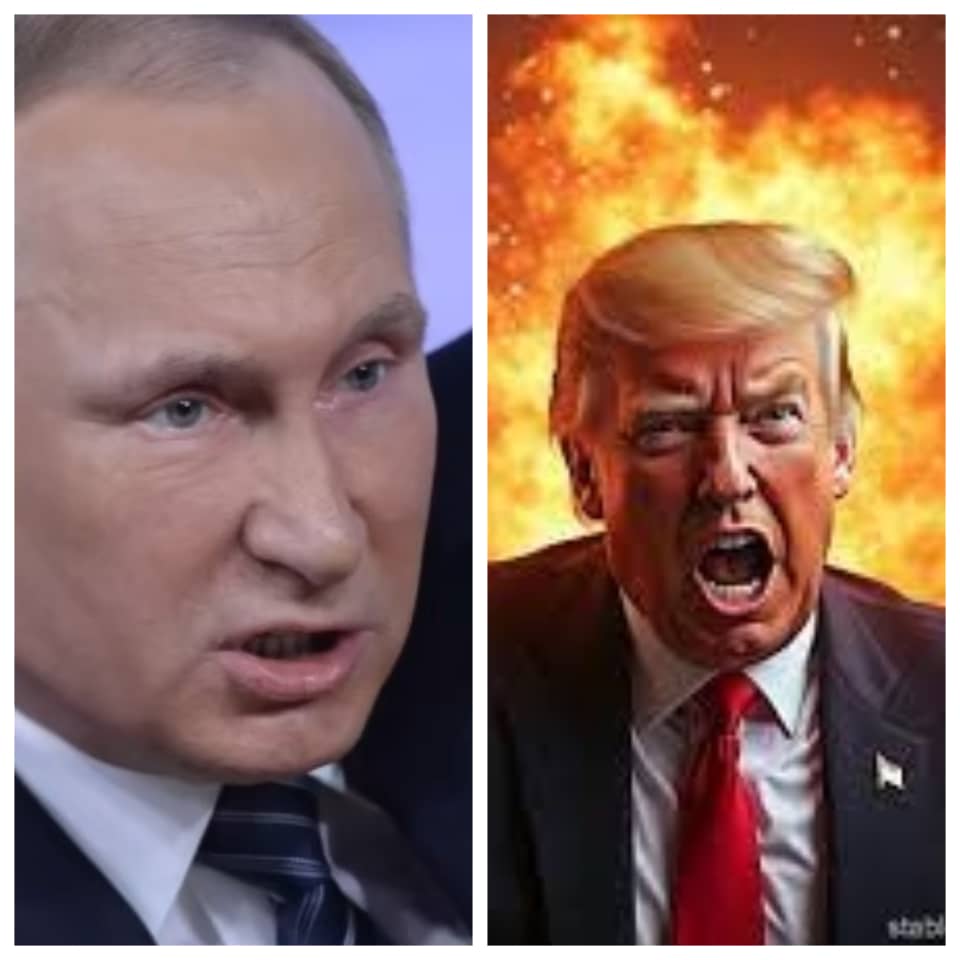Is Donald Trump afraid of Vladimir Putin?
People often talk about the connection between Trump and Putin.
From public praise to sudden sanctions, the relationship between these two leaders is a puzzle that continues to intrigue many.
During a conversation with Trump on Fox News on 9th March 2025, Maria Bartiromo, a journalist, asked the President a clear question.
“Have you been as tough on Russia as you have been on Hamas?”
Here is what Trump had to say: “I have been much tougher…, tougher than anybody has ever been.
“First of all, we had the Russia, Russia, Russia hoax, which was a very bad thing.
“It could have led to war.
“Remember, I am the one that stopped the Russian pipelines.
“I am the one that put sanctions on Russia.
“I am the one that gave javelins against Russia.
“But I got along well with Putin…”
Over last weekend, Trump’s announcement on Truth Social about potentially imposing extensive sanctions and tariffs on Russia is a striking turn of events in his approach to the Ukraine conflict.
This move, on the surface, seems to signal a tougher stance on Moscow.
But it’s hard to ignore the timing and context.
Just days earlier, Trump faced backlash for a heated Oval Office clash with Ukrainian President Volodymyr Zelensky.
His comments and demeanor were widely interpreted as favoring Vladimir Putin.
Now, by threatening economic consequences for Russia, Trump might have attempted to recalibrate his image and counter the narrative that he’s “soft” on Putin.
The Oval Office confrontation, where Trump accused Zelensky of “gambling with World War III” and dismissed Ukraine’s position as weak, left a sour impression.
Critics argued that Trump’s rhetoric undermined U.S. support for Ukraine and emboldened Russia.
The fallout from this clash likely put Trump in a position where he needed to demonstrate a more balanced—or even assertive—approach to the conflict.
His sanctions announcement was a strategic response to this criticism.
He aims to project strength and neutrality while still pushing for a peace deal.
However, there is a problem of consistency.
Trump has often praised Putin as “strong and smart” and avoided criticizing him.
This has made people question his true stance.
Suddenly, he is threatening sanctions against Russia.
But some see this as a way to distract from his recent Oval Office controversy rather than a real change in policy.
If people think these sanctions are fake or won’t work, it could hurt his reputation even more when it comes to foreign policy.
While Trump has expressed a desire to negotiate peace, his approach has sometimes been seen as more accommodating to Putin compared to other leaders.
He referred to Ukrainian President Zelensky who has ruled since 2019 as a “dictator without elections.”
But when he was asked if he viewed Putin in the lens, he failed to give a categorical response.
It’s baffling, isn’t it?
Calling Zelensky—a leader democratically elected in 2019—a dictator, while giving Putin, who has clung to power for over two decades through constitutional loopholes and political maneuvering, a free pass, feels like a glaring double standard.
Putin would “eat Trump for lunch”
During the Presidential debate, Trump claimed that Putin respected him and suggested that his leadership would have prevented the Ukraine war.
Harris, on the other hand, argued that Putin would “eat Trump for lunch,” implying that Trump might not be able to stand up to Putin effectively.
Fast forward to now, Harris’s prediction seems to be playing out.
After the Oval Office clash between Trump and Zelensky, where Trump criticized Ukraine’s position and accused Zelensky of risking a larger war, the U.S. withdrew military aid and intelligence support to Ukraine.
This decision left Ukraine without critical tools to counter Russia, potentially giving Putin an upper hand in the conflict.
In the Ukraine war, Russia is clearly the aggressor and Ukraine the victim.
Peace must come from the aggressor stopping the invasion, not from the invaded halting their defense.
It is hilarious and ironic of Trump to claim that Zelensky is averse to peace.
It seems like Trump ignored the fact that Ukraine has been defending itself against a much stronger opponent.
His comments made it sound like Zelensky was the problem, even though Ukraine is the one under attack.
This kind of statement feels unfair and out of touch with the reality of the situation.
It’s like blaming someone for not stopping a fight when they’re the one being punched.
Whether this reflects fear, strategy, or simply Trump’s unique style of diplomacy is open to interpretation.







